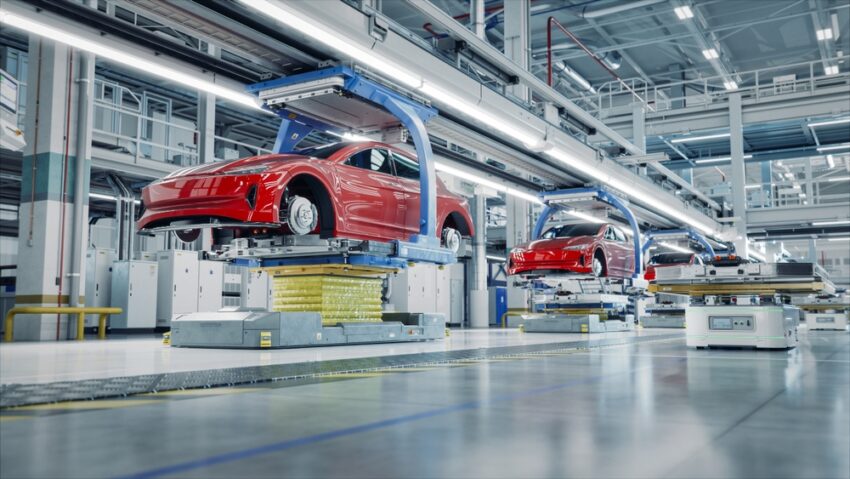The UK automotive industry has faced an eighth consecutive month of declining car production, according to figures from the Society of Motor Manufacturers and Traders (SMMT). October 2024 saw a 15.3% drop in car output compared to October 2023, resulting in a total production of 670,356 passenger vehicles between January and October 2024—down 10.8% year-on-year. This decrease equates to 81,000 fewer units than the same period in 2023. The downturn is attributed primarily to a drop in export demand, particularly in Europe, and factory retooling for next-generation zero-emission vehicles.
The industry’s pivot to electric vehicles (EVs) has been met with challenges, including opposition to the UK’s Zero Emission Vehicle (ZEV) mandate, which requires 22% of new car sales in 2024 to be electric. Automakers face steep penalties for failing to meet these targets, with fines up to £15,000 per car. This policy, along with global market slowdowns for EVs, has left manufacturers under financial strain. The SMMT estimates that manufacturers could incur £1.8 billion in penalties this year alone. This pressure has also contributed to factory closures, such as Vauxhall’s 120-year-old Luton plant, and significant job losses across the sector.

Domestic and export markets show contrasting trends, with car production for UK markets rising 5.3% in 2024, while exports fell 14.8%, translating to nearly 90,000 fewer vehicles shipped abroad. Despite efforts to increase the production of EVs, hybrids, and plug-in hybrids, these account for only a third of the UK’s October output. The SMMT has criticized the government’s aggressive timeline for EV adoption, arguing it lacks sufficient consumer incentives to stimulate demand and risks compromising industry sustainability.
SMMT CEO Mike Hawes has called the situation “deeply concerning,” emphasizing the need for an industrial strategy that ensures competitiveness while addressing high energy costs and trade barriers. He also advocates for regulatory adjustments to balance ambitious EV targets with market realities. The automotive sector requires government-industry collaboration to foster a strong domestic market and address the rising costs of transitioning to zero-emission technologies.
Amid declining passenger car production, the UK has seen record outputs of vans and commercial vehicles, which reached a 16-year high despite a recent dip in October. However, this growth may be short-lived, as Vauxhall’s closure of its Luton plant—slated for April 2025—is expected to significantly impact future production. The SMMT stresses the importance of a supportive trade and industrial strategy to keep the UK competitive in advanced vehicle manufacturing, particularly as automakers continue to face global market pressures and domestic regulatory challenges.

